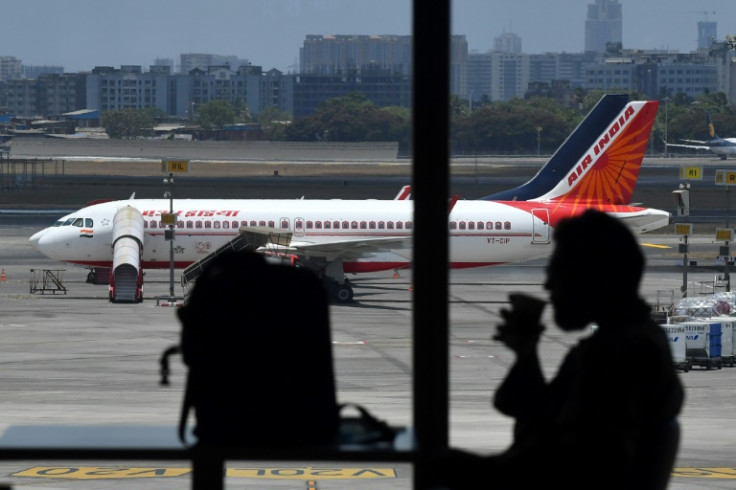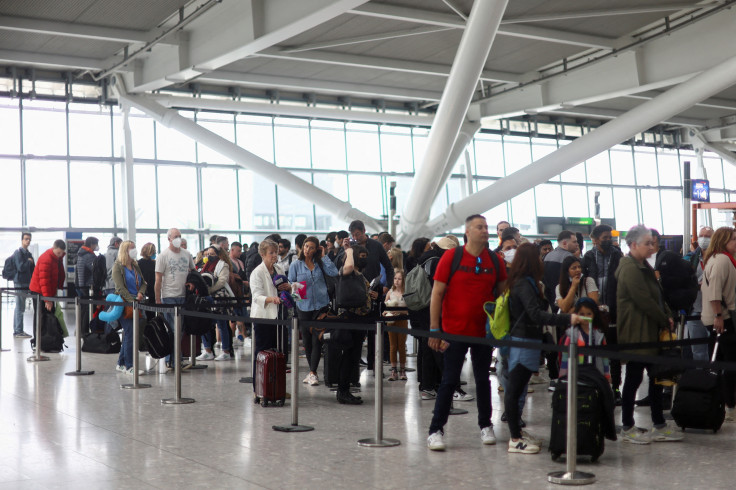Travel Advisory Issued In Pakistan After India Attacks: How Will Your Flights Be Affected?
According to reports, major airlines including Air India, Qatar Airways, Lufthansa, and Air France have already adjusted their routes, issued passenger advisories, or suspended flights altogether.

Cross-border and diplomatic tensions between India and Pakistan have begun to ripple across international air travel, after India launched air strikes on nine militant-linked sites across Pakistan-administered Kashmir and Pakistani territory early Wednesday.
The strikes, part of what India has called 'Operation Sindoor,' come in response to a deadly attack in the Pahalgam region that left 26 civilians dead. While New Delhi insists the action was targeted and restrained, the situation on the ground remains fluid — and commercial airlines are not waiting to see how it unfolds.
According to reports, major airlines including Air India, Qatar Airways, Lufthansa, and Air France have already adjusted their routes, issued passenger advisories, or suspended flights altogether. With Pakistani airspace now partially closed and key airports in northern India temporarily shut, the fallout is immediate for travellers, particularly those flying into or over South Asia.
Airlines React to Military Action and Airspace Closures
Several airlines operating in the region acted quickly once news of the strike emerged. Indian carrier SpiceJet was among the first to issue an advisory early Wednesday, stating that airports in Northern Indian cities –Dharamshala, Leh, Jammu, Srinagar, and Amritsar—will be closed until further notice. The statement warned that 'departures, arrivals, and consequential flights would also be impacted.'
Qatar Airways later confirmed it had suspended services to Pakistan in response to the airspace closures, writing on X (formerly Twitter): 'The airline is closely monitoring the situation and will continue to prioritise the safety of its passengers and crew.'
Flight tracking data on Wednesday showed widespread rerouting of flights around Pakistani airspace. Passengers posted videos from affected airports, showing long queues and cancelled departures. Several European carriers have followed suit, with Air France announcing that it has 'stopped flying over Pakistan' due to the recent escalation of tensions between India and Pakistan.' Lufthansa also confirmed to Reuters that it, too, is 'avoiding Pakistani airspace until further notice.'
UK Updates Travel Guidance for British Nationals in the Region
Parallel with aviation disruption, several governments, including the UK, have reissued or strengthened their travel advisories for Pakistan and the wider region.
The UK's Foreign, Commonwealth and Development Office (FCDO) has updated its travel guidance. A Foreign Office statement said: 'On the night of 6 May (UK Time), the Indian Ministry of Defence stated it had struck nine sites in Pakistan and Pakistan-administered Kashmir. In response, there are reports of Pakistani artillery fire across the Line of Control.'

The statement also noted that the Pakistan Civil Aviation Authority has closed national airspace for at least 48 hours. 'There are reports of flights being diverted. British nationals should contact their airline for up-to-date information,' the Office said, adding that they are 'continuing to monitor the situation closely' and urged UK citizens in the region to follow local authorities' advice and remain alert.
This is in addition to earlier standing advice against all travel within 10 kilometres of the India-Pakistan border and to Balochistan province, areas deemed high-risk due to ongoing security concerns.
Meanwhile, the US had also issued a travel advisory following the strike. The US Department of State said it was 'aware of reports of military strikes by India into Pakistan' and warned that the situation remained 'evolving.' It reminded American citizens of the standing 'Do Not Travel' advisory for areas along the India-Pakistan border and a 'Reconsider Travel' warning for Pakistan as a whole. 'We advise US citizens to depart areas of active conflict if they can safely do so, or to shelter in place,' the department said.

In Australia, the Smartraveller advisory service updated its guidance on Wednesday, stating that Australians should 'reconsider their need to travel to Pakistan due to the volatile security situation.'
What Passengers Should Know
The closure of Pakistani airspace, combined with the temporary suspension of key airports in India, has made it difficult for airlines to maintain normal schedules. Reports suggest that flights between Europe and Southeast Asia that typically transit through Pakistani skies may now be longer or rescheduled.
Travellers heading to or from India, Pakistan, or neighbouring regions should expect possible delays and route changes. Airlines are advising passengers to check the latest updates directly with their carrier before going to the airport. Some routes may be rerouted via the Middle East or Central Asia, potentially increasing travel time.
Meanwhile, land crossings have not been spared. According to reports, India and Pakistan have closed the Attari-Wagah border crossing until further notice, halting all overland travel between the two nations.
© Copyright IBTimes 2025. All rights reserved.





















